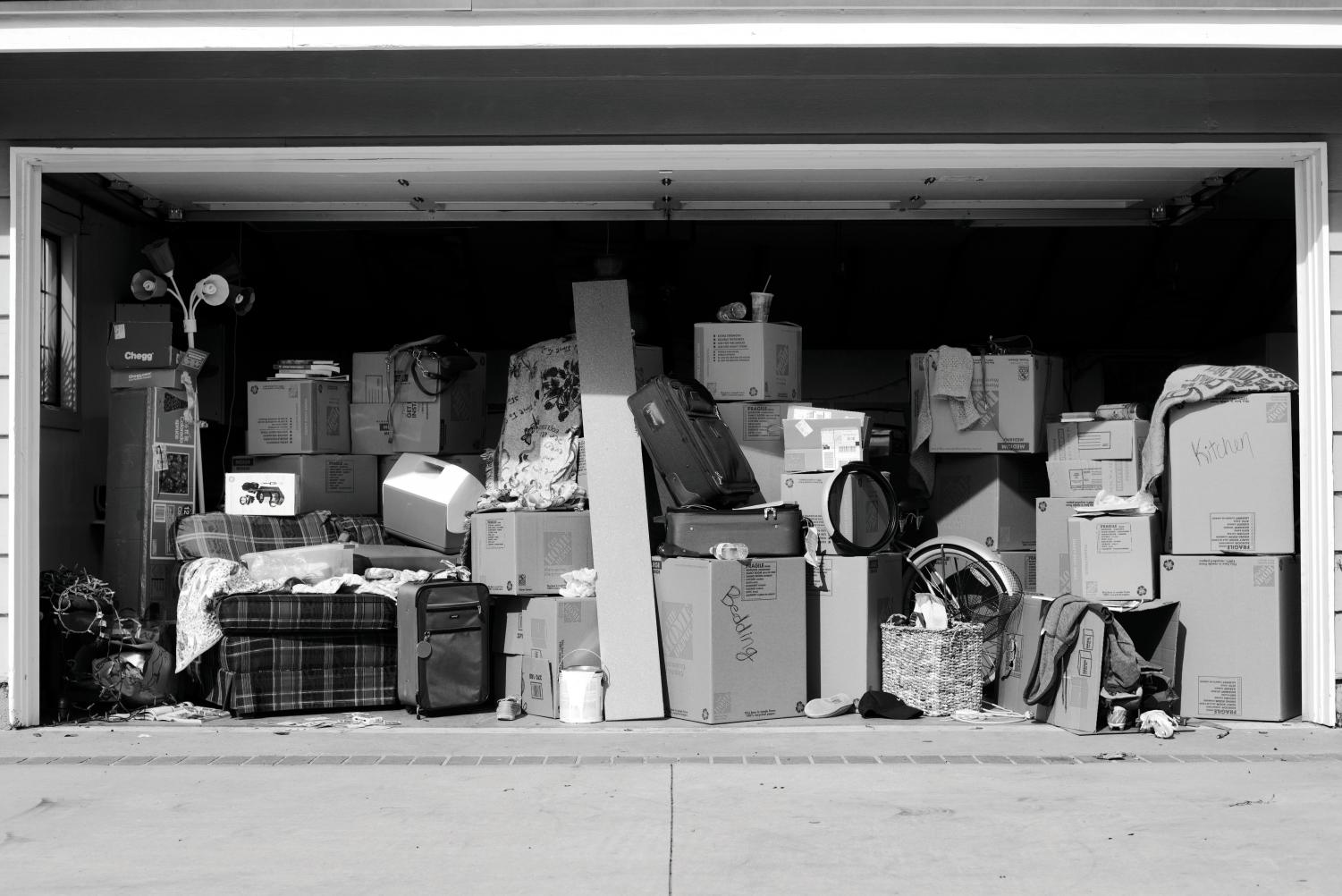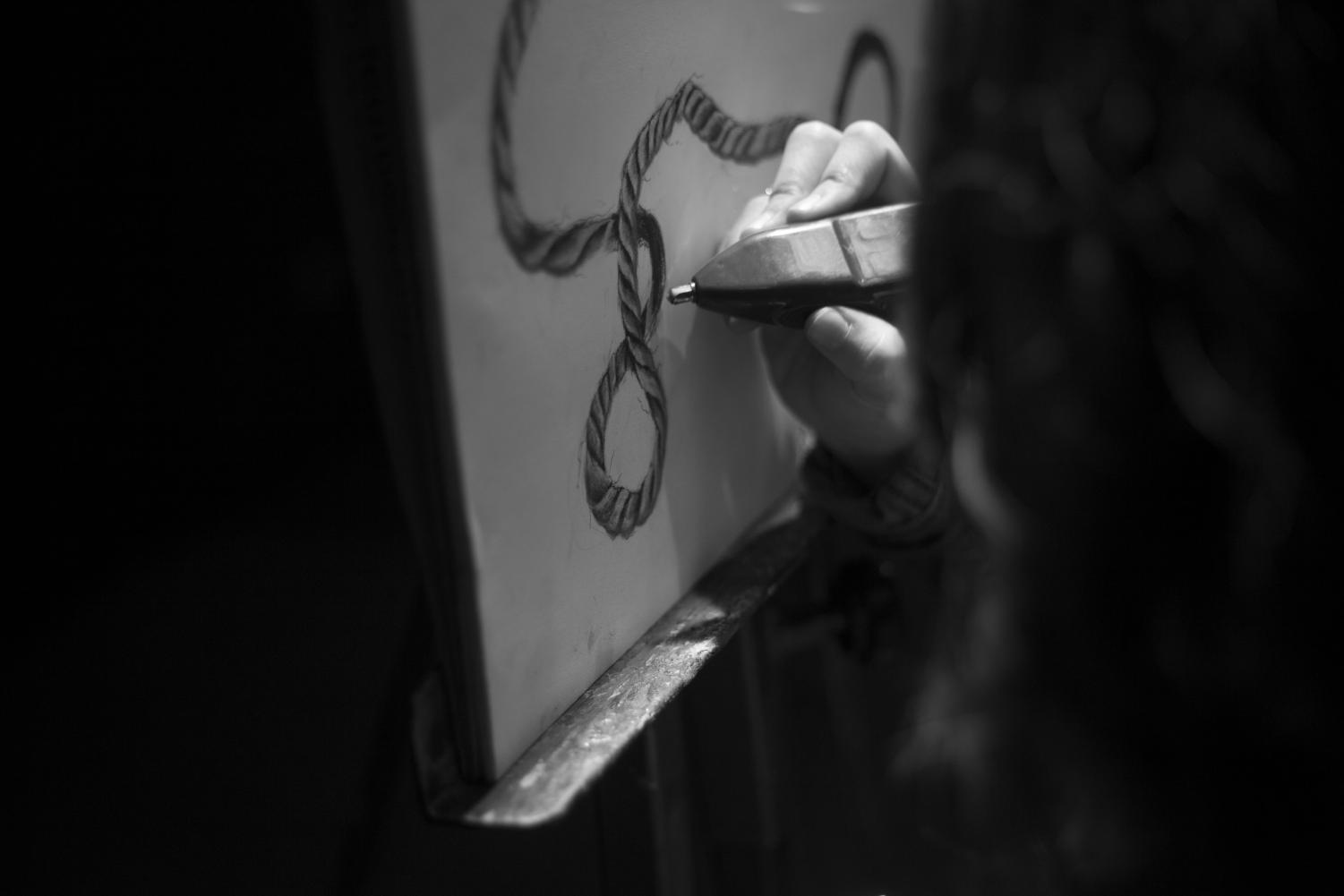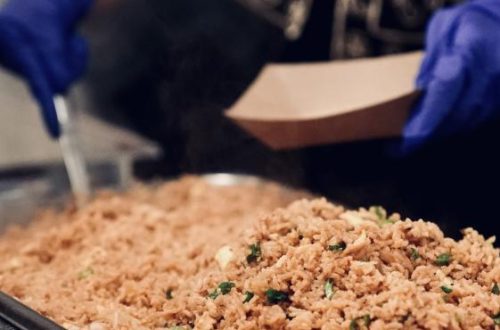Written by Kahlie Colwell
Two Camelback water bottles. A $25 dollar gift card to JCPenney. Brand new Nike Ruckus Low shoes. An Oreck vacuum. Unopened beef jerky. A Timbuk2 bag worth $100. An espresso machine. A $10 bill.
These items represent just a tiny sampling of stuff found by Biola alumnus Parker Gross during a dumpster diving expedition around Biola’s dorms during finals week. While scavenging, Gross snagged everything that was in good and useable condition, compiling a list of unwanted and wasted goods that was valued at over $2,000. The sheer amount of stuff Gross found is overwhelming.
If you are anything like Gross, such an extravagant example of waste can be shocking. Gross was able to use a number of the items he found, not only saving money but enjoying things he might never have purchased for himself. Furthermore, he was able to sell some of the other items for money, and donate still others to charity. Seeing what uses there are for these discarded items makes it difficult to believe that anyone could have tossed them in the dumpster.
Yet, peep your head over the side of any of the dumpsters camped outside of Biola’s dorms and you will see that Gross’s experience is the norm rather than the exception. It seems that here at Biola we have an excess of unwanted goods. The problem is deciding what to do with them.
If Gross’s example proves anything, it is that we students often buy or acquire things that we do not end up needing or using. Perhaps this is not surprising. We live in one of the wealthiest nations in the world, where material goods abound. And we have been raised in a consumerist culture. Buying, and discarding, an excess of things is not unusual.
Why we want more stuff
Richard J. Foster, in his book “Celebration of Discipline,” identifies insecurity as the driving force behind culture’s overwhelming desire for stuff. Foster explains that this insecurity causes us to lust after status, position and affluence in society. Essentially, people in materialist societies are concerned about what others think of them, and they believe that the better stuff they possess, the more people will admire them.
Looking back on the experience, Gross admits that his first response to the number of wasted items was one of frustration. Now, however, he understands what caused the apparent waste he saw.
“A lot of students are from out of state,” Gross says. “Students acquire a lot throughout a semester, and don’t realize it. And then suddenly it doesn’t all fit in their suitcases. So I think it is just students trying to downsize.”
We might think of people in a consumerist culture as being in love with possessions. Yet the reason people buy things is often to temporarily fulfill their desires before moving on to the next greatest thing. This is not loving possessions. Rather, it is missing out on the value and blessing of the things we have.
As Christians, many of us know the Bible’s warnings about wealth. We have all heard the story of the rich young ruler whom Jesus commanded to give away all his possessions. Is this then what is really required of us: that we donate all we have and live in poverty?
Poverty versus simplicity
Dallas Willard, in his book “The Spirit of the Disciplines,” draws a decisive line between poverty and a seemingly similar idea called simplicity. According to Willard, living simply does not mean living in poverty.
“The person who has grown to the place where he or she can truly say with Paul, ‘This one thing I do’ (Philippians 3:13), or who truly ‘seeks first the kingdom of God and His righteousness’ (Matt. 6:33), is a person who has entered into simplicity,” writes Dillard.
Willard is saying that the one whose focus is on the kingdom of heaven is the one who is living simply, not poorly. Jesus called his followers to live simply – to keep their eyes on what really matters.
Thus it is important to point out that material possessions, and the ownership of them, are not evil in and of themselves.
“Scripture declares consistently and forcefully that the creation is good and to be enjoyed…” Foster states. “Asceticism can find no place for a ‘land flowing with milk and honey,’ Simplicity can rejoice in this gracious provision from the hand of God.”
When God led the Israelites into Canaan, he led them to a place full of good things. God has done the same for us. He has given us a world full of pleasing things, and he wants us to delight in his provision. However, it is when we begin to desire God’s blessings more than him that they start to take over our lives.
Using our possessions to make a difference
For Thomas Crisp, Biola professor of philosophy, living simply is a matter of focusing on the life and teachings of Jesus Christ. He explains that in contrast to the Romans, who believed in using excess wealth for oneself, Jesus taught his followers that their wealth was to be used for the benefit of others.
“We live in a world where literally billions of people are fighting hunger and disease. And we can actually do something about it,” Crisp urges. “We can radically love others with our possessions. The question is how. How best to move into simpler and sacrificial living. That has to be discovered through a spirit of joyful experimentation.”
Reflecting on Jesus’ teachings has led Crisp and his family to strive for a life free of excess wealth.
“I try to eat simply, I try not to buy clothes unless I need them and I try to give generously of gifts that are given to me,” Crisp says. “If I get gift money I’ll try to give most of it away. I’ll try to not buy things unless I absolutely need them.”
His family’s shedding of excess is not a reflection of Crisp’s belief that money and material possessions are evil. Rather, it is an example of Crisp’s joyful desire to use what he has to show the world God’s love. It is this mindset that God desires from us.
Crisp emphasizes that his family’s lifestyle is not some ideal, exact formula to follow.
“I don’t hold myself up as the perfect model by any means,” he stresses. “My family and I try to live simply. We are not heroic by any means.”
His advice to anyone interested in using their resources to better love others?
“Try out different ways of living in simplicity,” Crisp suggests, “so that you can have more to share with those that suffer.”
If you go out to eat a lot, perhaps choose to go out one day less a week. Give away the gift money you receive for your birthday. Decide not to buy yourself another pair of shoes until you wear your other pair out. In each example, you can save money that you might have spent frivolously on yourself, and instead give it to someone else. Living simply often requires a sacrifice on our part, but doing so allows others to benefit from your lifestyle change.
Seeing all things as God’s
For Mark McReynolds, Biola professor of environmental science, living simply also requires another subtle shift in perspective. Simple living first requires looking at possessions in a whole new way.
“It is not that God gave us possessions or materials,” he says, “but that he owns them. It is his to do with however he wants to, and we are stewards of his stuff.”
Consider McReynolds’ words in light of everything you own. None of it is yours. God owns it all, rendering you responsible to use everything he has given you according to his will. Ask yourself how you are using your money. Are you regularly putting it towards God’s work in the world, or are you consistently buying things you neither need nor use? Do you thoughtlessly waste the food you buy, knowing there is always more at the grocery store? What about your clothes, computer or car? A change in perspective will cause us to start asking questions of ourselves and our habits.
McReynolds believes it is both possible and beneficial to live more simply than is typical in materialistic cultures. Reflecting on this, McReynolds states, “Simplifying allows us to spend time and money – both of which are resources – in other ways. We are spending these things in other ways that are connected to ministry or tithing or something like that.”
For example, McReynolds and his wife share a car, rather than each having their own. Living close to Biola’s campus, he bikes or walks to work each day. In doing so, McReynolds saves a significant amount of money, and this money can thus be put to better use.
“But there is another piece to this,” McReynolds says, “and that is that I don’t want to contribute to extra smog and I don’t want to burn up extra oil. There is no reason for me to do that.” He believes that God expects Christians to be stewards of the earth as well as their possessions.
It becomes clear through McReynolds’ example that living simply involves more than just how we use our money and material possessions – it also involves, among other things, how we spend our time, view our careers and view the earth and its resources. We must ask ourselves how we are using these things for the Kingdom, not because it is wrong that we have them, but because they are blessings from God that provide us with opportunities to experience his love and share it with others. This is the proper way to live in relation with what we have been given.
The heart behind simple living
It is also important to realize that none of these examples define simple living on their own. A simplified life is one that puts aside all other things in order to keep Jesus’ command to seek first the kingdom of heaven.
“Nothing must come before the kingdom of God,” Foster explains, “including the desire for a simple lifestyle. Simplicity becomes idolatry when it takes precedence over seeking the kingdom.” He goes on to say that from this single-minded focus will flow all other decisions, including how to use our lives and our possessions for the glory of God.
There are small ways we can implement this kingdom-driven mindset. Returning to Gross’s dumpster diving list, consider what you believe to be your excess, and ask how it can be used to glorify God. You might spend just a few minutes researching where to donate your extra goods so others can benefit. On the other hand, maybe you need to question your motives for discarding certain things – it could be that whatever it is you plan to throw away still has value, but you are making room for your next purchase.
On an even more fundamental level, take a minute to review how much you are buying. If Gross’s example proves anything, it is that we have a tendency to buy more than we need, or even want. Start asking questions of yourself so that you might slowly conform your life to God’s standards.
Perhaps in doing so, we can redeem the way the world looks at God’s possessions. In a consumerist culture where continuous buying is encouraged, it is difficult for people to appreciate what they already own because they are obsessed with the next greatest thing. Yet Christians should realize their material possessions are a gift directly from the Creator himself – a fact that demands that we pause in thanksgiving rather than rush to buy more stuff. This kind of simple recognition and gratitude is certainly counter-cultural in any materialistic society. In learning this lesson, we will not only discover contentment for ourselves, but share its liberating powers with the world around us.





